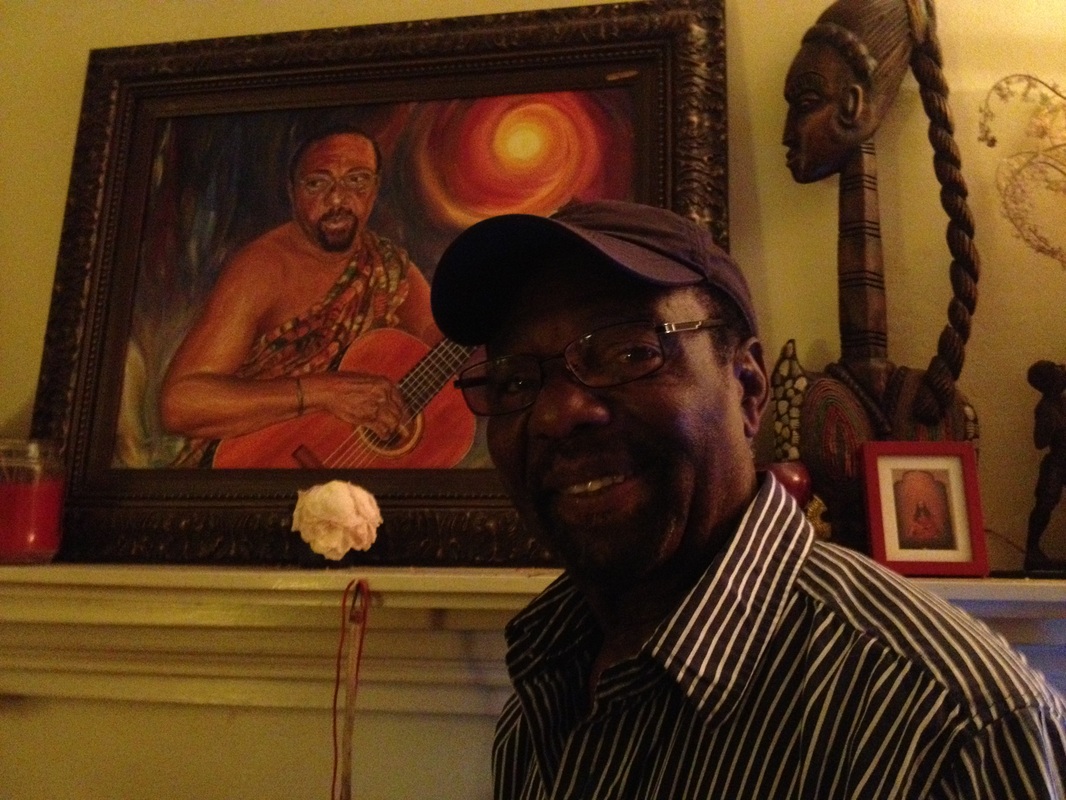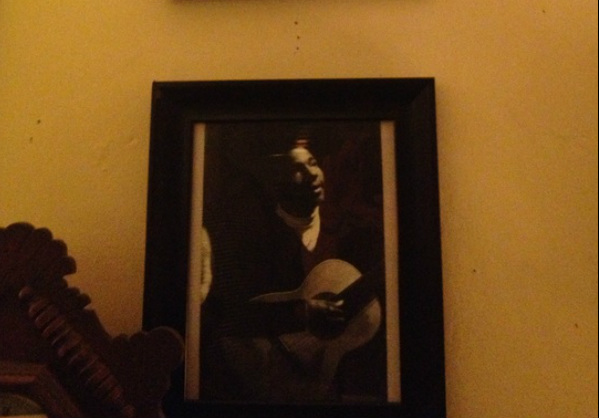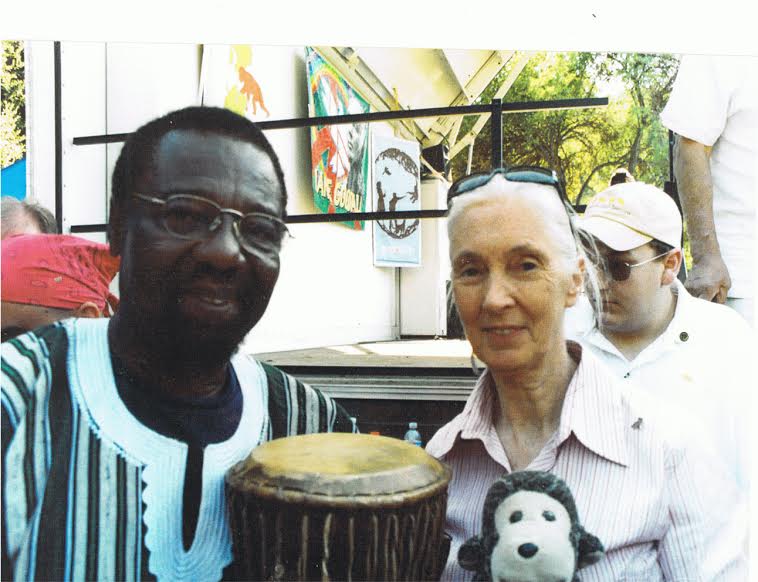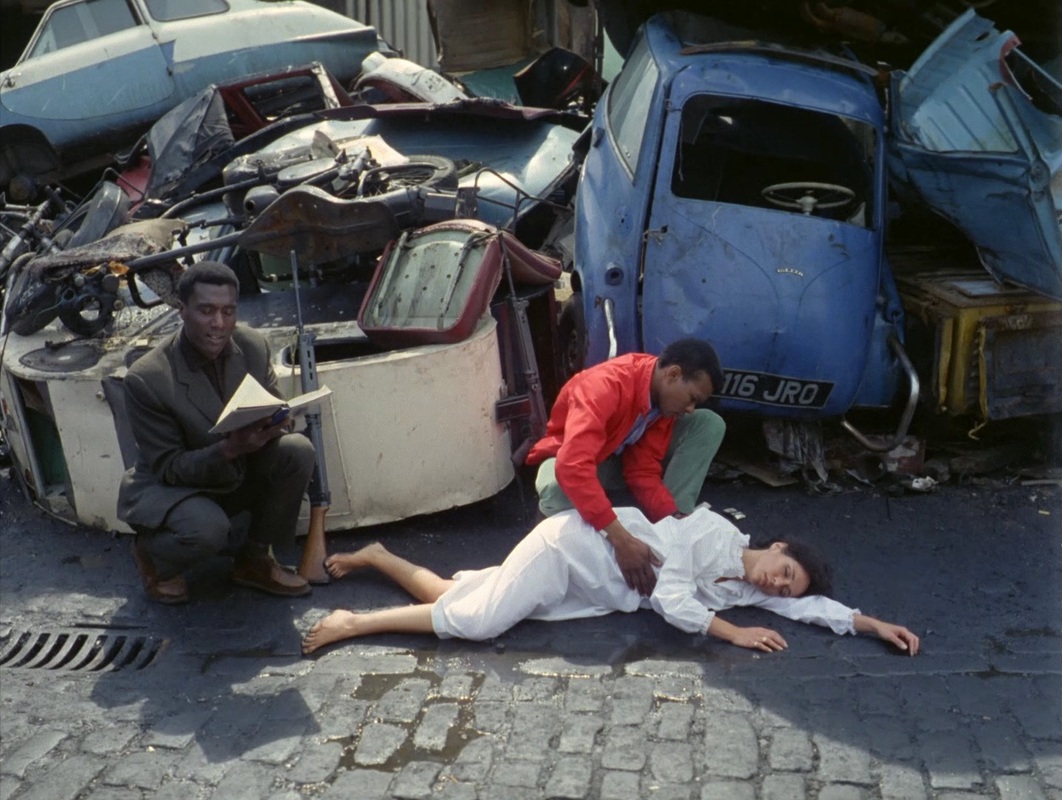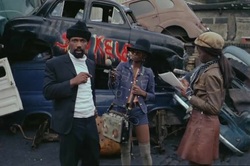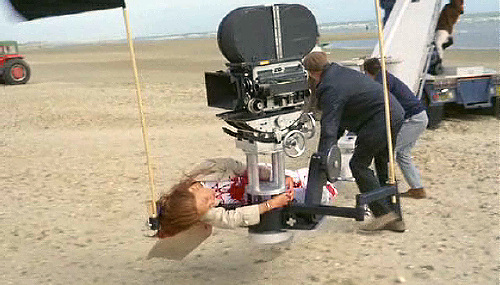Interview
|
True Identity
Tumi Ebow Ansa
You are likely to come away from a conversation with Tumi Ebow Ansa, native Ghanan actor, musician, and enthomusicologist, a believer in storytelling as a form of living history. His recounting of an adventurous and creative life will charm you into learning some history, particularly of Ghana.
Tumi was born in Ghana at a time when many of the cultural and spiritual traditions had been outlawed or suppressed by the British. He shares a personal account of the impact colonization had on one particular Ghanaian spiritual practice that had been a strengthening and bonding tradition for families.
|
With Jane Goodall, Day of Peace, Griffith Park, Los Angeles, California
Tumi performed twice for Jane Goodall |
He met Mick Jagger at a film school in London and Brian Jones through a mutual friend, an African drummer who played with the band and recorded with them in the studio. It was through this connection that Tumi was cast in Jean-Luc Godard's first feature film, initially titled One Plus One. As any cineast will attest, Godard is one of the true independent auteur directors of the twentieth century. His radical jump-cut editing style literally opened up the medium and influences to this day.
According to Tumi, Godard was more fascinated by black political thought than he was the band as evidenced by the simply, basically cinema veritee style scenes of the Rolling Stones rehearsing and recording Sympathy for the Devil. The rest of the film is a much better representatin of the budding director's explorations and cinema to come. Tumi recounts how Godard's approach to the film with the Rolling Stones was initially supported by the young producers (Virgin Group's Richard Branson among them) but was subjugated by turning the film into a band promotional, which may have been the commercially shrewed move at the time, one wonders if it could have withstood the integrity of the Director's intention? Tumi also talks about the choice of the song Sympathy for the Devil as the title and focus and how this reflected on the "black power" scenes turning Godard's message into negative propaganda about black politics and political thought. Godard was so disgusted with the result he had announced at the premier that "We should all get our money back."
According to Tumi, Godard was more fascinated by black political thought than he was the band as evidenced by the simply, basically cinema veritee style scenes of the Rolling Stones rehearsing and recording Sympathy for the Devil. The rest of the film is a much better representatin of the budding director's explorations and cinema to come. Tumi recounts how Godard's approach to the film with the Rolling Stones was initially supported by the young producers (Virgin Group's Richard Branson among them) but was subjugated by turning the film into a band promotional, which may have been the commercially shrewed move at the time, one wonders if it could have withstood the integrity of the Director's intention? Tumi also talks about the choice of the song Sympathy for the Devil as the title and focus and how this reflected on the "black power" scenes turning Godard's message into negative propaganda about black politics and political thought. Godard was so disgusted with the result he had announced at the premier that "We should all get our money back."


